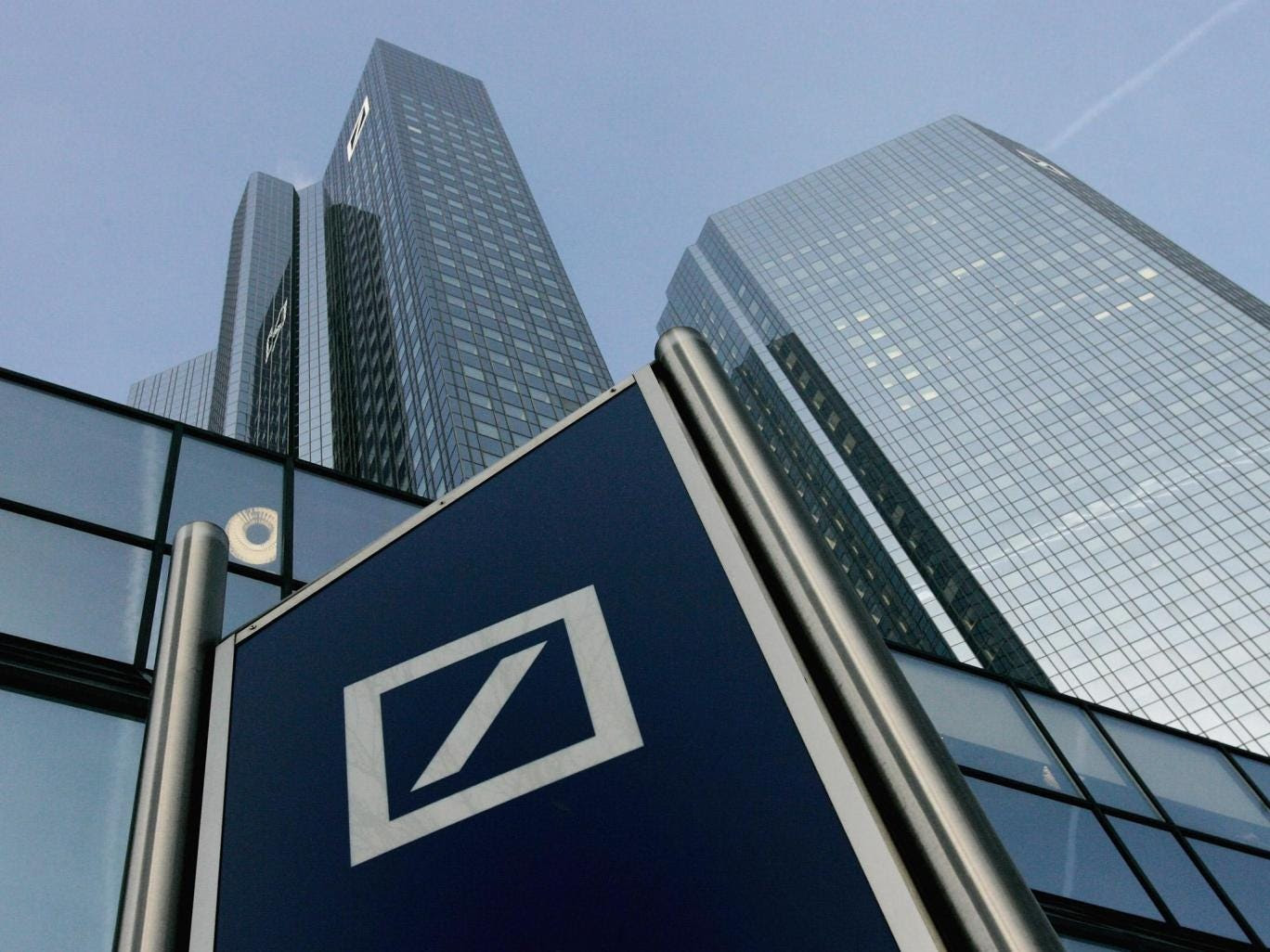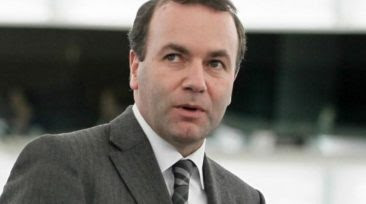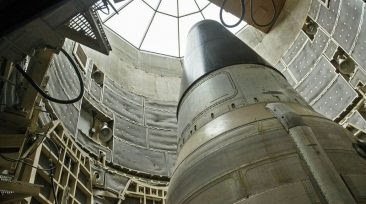When members of the UN Security Council wage war at each other
It is clear that in a supposedly common struggle against a common enemy - the Islamic State - two great powers (and their "allies") now oppose each other, USA against Russia, and the irony is that each relies on the legitimacy of the United Nations principle to intervene in the battle field: a new Right to Protect rule on the one side (the US) and basic principles of non-interference on the other (Russia). With aggressive statements being issued by both sides, this confrontation summons to consider the possibility of a tragic outcome, a third world war, even nuclear. A global conflict, let’s face it, will not spare Europe, let alone Europeans... (Read the entire article in the GEAB 108)
The Deutsche Bank case: a very useful scarecrow
When in trouble, the US always uses the same method, which consists of hiding its own problems by bringing out into the open the problems of others. Europe is regularly the fall guy. So when the world, in total awe, learns about the record fine of $14 billion that the US imposed on Deutsche Bank, we could certainly look horrified at the violations committed by this bank, but we must also see the interest which this sanction serves. Many commentators saw this as a little revenge after the Apple fine in Europe, a credible explanation, but there is more to this. By creating problems for the largest European bank, the United States has managed... (Read the entire article in the GEAB 108)
DB posts surprise profit despite threat of $14bn fine
The troubled German lender Deutsche Bank has unexpectedly returned to profit in the third quarter, beating analysts’ estimates and helping to alleviate concerns over its litigation issues. Deutsche bank, led by the British banker John Cryan, reported a profit of €278 million (£248m) for the three months to the end of September. This compares to €6 billion loss in the same quarter of 2015... (The Independent)
UK GDP growth slows to 0.5% after Brexit
The pace of the UK economy has dropped in the first official verdict on how the economy has performed after the UK voted to leave the EU in June. Growth in the three months to September dropped to 0.5 per cent, down from 0.7 per cent in the April to June quarter, acording to data from the Office for National Statistics (ONS)... (The Independent)
Rising Powers and International Security: the BRICS and the Syrian Conflict, by Adriana Erthal Abdenur
Some rising powers, including the BRICS states (Brazil, Russia, India, China,and South Africa), have openly contested certain international security norms, for instance challenging the tendency to invoke humanitarian protection to carry out military intervention. However, the relevance of rising powers, and especially coalitions of such states, to specific conflicts remains poorly understood. How pertinent is the BRICS as a collective actor in international security, and what are their stances on major armed conflicts? This article focuses on the Syrian conflict, examining the BRICS coalition’s positions on the war since 2012... (LEAP)
Weber to May: UK can leave but cannot make decisions for EU
His outburst came after May angered some European leaders by telling her first EU summit that she expects Britain to be at the centre of European decision-making until Brexit takes place. Brexit was a relatively low-key issue at a summit dominated by other matters, including Russia, Syria and the migration crisis. But, in a brief speech at the end of an EU leaders’ dinner in Brussels on Thursday, May said Britain wanted to continue to play a central role in meetings and decisions until it leaves the bloc... (The Parliament Magazine)
EU drops law to limit cancer-linked chemical in food after industry complaint
The European commission has dropped plans to legally limit a pervasive but naturally occurring chemical found in food, that is linked to cancer, just days after lobbying by industry, the Guardian has learned. Campaigners say that leaked documents revealing the legislative retreat show “undue influence” by the food industry over EU law-making and a “permanent scandal”, although the issue is complex... (The Guardian)
Nuclear-Armed Foes Unite Against a UN Call to Shed Their Weapons
For all the divisions among world powers, one concern unites Russia and the U.S., India and Pakistan, North Korea and Israel at the United Nations: Keeping their nuclear weapons. Those nuclear-armed states and the three others — China, France and the U.K. — are working to head off a resolution calling for a global conference to establish a binding “legal process” to ban the manufacture, possession, stockpiling and use of the weapons. They’re bucking a popular cause backed by 50 nations, from Ireland to Brazil, which say the measure could win as many as 120 votes in the 193-member General Assembly... (Bloomberg)
EU trade deal with Canada on brink of collapse after Belgian disarray
The EU’s hopes of signing a free-trade agreement with Canada this week are on a knife-edge after Belgium announced it could not sign the treaty because of opposition from regional parliaments. The collapse of the negotiations in Belgium highlights the pitfalls that may await the British government when it seeks to negotiate a trade deal with the EU after Brexit... (The Guardian)
How to monitor the EU's new border security strategy
The European Council of 20-21 October has confirmed the EU’s undaunted resolve to outsource parts of its immigration control policy to third countries. The trend started initially with the EU-Turkey migration agreement earlier this year, and gained considerable momentum with the recent adoption of the Migration Partnership Framework. The Framework entails the negotiation of several "migration compacts" with key countries of origin and transit (initially Niger, Nigeria, Senegal, Mali and Ethiopia), backed by significant financial and technical assistance packages... (EUObserver)
The BRICS: Aren’t breaking any time soon, by Maiara Folly
In 2009, when Yekaterinburg hosted the inaugural Head of State Summit of the BRIC coalition, the world was facing its most critical financial crisis since the Great Depression of the early 1930s. Despite the turbulent international context, the grouping (which became known as the BRICS after the official inclusion of South Africa in 2011) remained relatively insulated from the initial shocks of the crisis. While the developed world struggled to recover economically, the BRICS bounced back quickly and became even more vocal in demanding reform of the established international organisations, including the Bretton Woods institutions... (LEAP)
Philippine president calls for removal of all US troops
The Philippine president, Rodrigo Duterte, has continued his anti-US rhetoric by calling for the removal of all foreign troops from the Philippines, possibly within two years. Speaking to an audience of business people at the start of a three-day visit to Japan, Duterte acknowledged that his recent remarks about Manila’s military “separation” from the US had angered Washington, but said he was determined to pursue an independent foreign policy... (The Guardian)
The Kremlin's money problems
At a summit of the BRICS nations in India on 17 October, Russian president Vladimir Putin defiantly stated that Western powers could “screw themselves” over the threat of more sanctions against his country. Earlier the US and the UK had threatened to slap additional measures on Russia over its relentless bombardment of the Syrian city of Aleppo. Putin is eager to show to the world that sanctions have little impact on his country and that the West is primarily scoring an own goal by holding on to them... (EUObserver)
Venezuela protests against Maduro escalate, dozens injured
Venezuela's increasingly militant opposition stepped up its push to oust leftist leader Nicolas Maduro on Wednesday with protests that drew hundreds of thousands but also saw unrest leading to dozens of injuries and arrests. In an incident sure to inflame the already polarized situation, a policeman died after being shot on Wednesday night in central Miranda state... (Reuters) |
viernes, 28 de octubre de 2016
2016/10/27 - Political Anticipation - A Press Review by LEAP
Suscribirse a:
Enviar comentarios (Atom)



















No hay comentarios:
Publicar un comentario
Se permiten solo aquellos comentarios que no sean ofensivos en su forma o su contenido, debiendo ser expresados en cualquier caso, con respeto a las personas e instituciones.